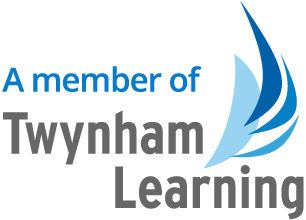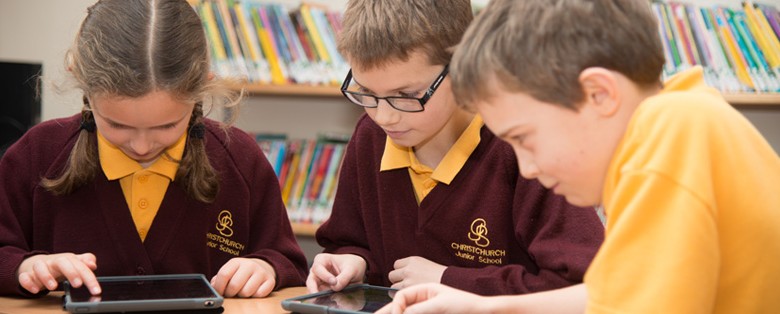We recognise that the welfare of the child is paramount and we take our responsibility to safeguard and promote the welfare of the children and young people in our care seriously.
An agreed definition of safeguarding is: ‘All agencies take all reasonable measures to ensure that the risks of harm to children’s welfare are minimised. Where there are concerns, all agencies take action to address those concerns, working to agreed local policies and procedures in full partnership with other local agencies’ – Joint Chief Inspectors’ report 2002.
If you have a concern about a child, particularly if you think s/he may be suffering or at risk of suffering harm, it is your responsibility to share information promptly with the Designated Safeguarding Lead for Child Protection (DSL) or one of the deputies:
Designated Safeguarding Lead: Mr Sam Fuller (Headteacher)
Deputies:
Mr. Ben Croton (Deputy Headteacher)
Mrs. Lisa Sykes (Pupil and Family Support Worker)
Mrs. Nina Gibson (Welfare Officer)
Child Protection Governor: Mrs. Maggie Fidler.
Please phone us on 01202 485579 or email dsl@cjsdorset.org with any concerns and ask to speak to the Designated Safeguarding Lead, Mr. Sam Fuller, about a safeguarding matter. If he is unavailable, you will be directed to one of our Deputy Designated Safeguarding Leads.
If reporting a concern, please provide as much information as possible.
If you have a concern during school holidays or out of school hours, please phone one of the numbers below.
If you have a serious concern because you think a child may be being abused, (physical abuse, emotional abuse, neglect or sexual abuse) you should contact the BCP Multi-Agency Safeguarding Hub (MASH.)
For all emergency situations please call 999 and ask for the police.
All volunteers and visitors to our school are introduced to the school’s policies and procedures for Child Protection and Safeguarding. As part of their visit they will be expected to read our summary of our Child Protection procedures.
We use the Disclosure and Barring Service (DBS) to undertake criminal record checks. The School Staffing (England) (Amendment) Regulations 2006 make it mandatory for an enhanced criminal record check to be obtained for all newly appointed school staff. Parents, governors and other volunteers who help regularly in the classroom and with activities associated with the school will require a DBS check because of the frequency of their volunteering activity and the contact they have with children, but others will not.
All visitors and volunteers are expected to sign that they have read our Safeguarding and Child Protection Procedures before entering the school building.
If there is an allegation of abuse about a member of staff, please contact our Headteacher, Mr Sam Fuller on 01202 485579.
If you wish to contact one of our governors, please send your email to the Clerk at clerk.governors@cjsdorset.org.
If you still have an unresolved issue and are concerned about the welfare of a student then please contact the Chair of Trustees, Lynda Clarke, at lynda.clarke@twynhamtrustees.com .
Keeping Children Safe in Education is statutory guidance that schools and colleges in England must have regard to when carrying out their duties to safeguard and promote the welfare of children.
Click here to read the Keeping Children Safe in Education Guidance document.
Click here to read a summary of changes to the Department for Education’s document Keeping Children Safe In Education.
Click here to read a summary of Keeping Children Safe In Education for parents and carers in English or here for copies in other languages.
Our school has been invited by Operation Encompass and given the opportunity to
take part in a project that will run jointly between schools and Dorset Police.
Operation Encompass is the notification to schools when a child or young person has
experienced any domestic abuse; this information will be shared with the school.
Click below for more information on Operation Encompass.
Our safeguarding and child protection duties includes the government’s Prevent Strategy.
All schools are subject to a duty under section 26 of the Counter-Terrorism and Security Act 2015, in the exercise of their functions, to have “due regard to the need to prevent people from being drawn into terrorism”. This duty is known as the Prevent Duty for Schools. This means schools have a responsibility to protect children from extremist and violent views the same way we protect them from drugs or gang violence.
https://www.gov.uk/government/publications/protecting-children-from-radicalisation-the-prevent-duty
At CJS, we recognise that safeguarding and creating a safeguarding culture is the responsibility of everyone who works here. We recognise that safeguarding against radicalisation is no different from safeguarding against any other vulnerability. One way that we build pupils’ resilience to radicalisation is by promoting fundamental British values and enabling our pupils to challenge extremist views.
Further links:
Dorset Police colleagues are seeking the support of residents as well as people visiting the county, to be aware of the signs of County Lines exploitation and to contact the police if they spot anything.
Signs to look for are:
- A young person going missing from school or home;
- Meeting with unfamiliar adults and/or a change in behaviour;
- Using drugs and alcohol;
- Money or expensive gifts they can’t account for;
- A neighbour who has not been seen for a while;
- More people calling at a neighbour’s home – often at unsociable hours;
- Suspicious vehicles/people attending a neighbour’s home.
If you are concerned about an individual or group who pose a risk to young and vulnerable persons within the community through exploitation or through other criminal means such as county line drug lines drug supply you can pass on information using the online Information Sharing and Request Form.
NEVER assume someone else has passed on the information you have. Duplicate information is better than none.
Click here to view BCP Safeguarding Children Partnership’s March 2022 key information briefing for parents/carers.
The following risk assessment details the actions we have taken as a school to reduce the risk pupils and staff face from Coronavirus (COVID-19).
Our trust’s Safeguarding and Child Protection Policy forms part of a suite of policies and other documents which relate to the wider safeguarding responsibilities of the Trust and each individual school.
In particular it should be read in conjunction with the following policies and procedures:
- Anti-bullying procedures
- Allegations of Abuse Against Staff
- Attendance
- Behaviour
- Code of Conduct for staff and volunteers
- Complaints
- Curriculum
- Equality
- E-safety policies for students and staff
- First aid
- Health and safety
- Privacy notices
- Recruitment and Selection
- Safeguarding and child protection procedures
- Sex and relationship education
- Whistleblowing
These polices can be found on our school’s Policies page which includes links to Trust wide policies.
BCP Children’s Services First Response
T. 01202 123334 Monday to Thursday: 8.30am to 5.15pm, Friday: 8.30am to 4.45pm or email.
Family Information Directory and SEND Local Offer – Information for families in Bournemouth, Christchurch and Poole including BCP’s Local Offer for children with SEND
Out of hours
The Children’s Social Care Out of Hour’s service is the emergency response service for any child who is in crisis, needs urgent help or is at serious risk of significant harm. Hours of operation are 5.00pm to 9.00am from Monday to Friday, all day Saturdays and Sundays and all bank holidays, including Christmas Day and New Year’s Day. Their phone number is 01202 738256 or email childrensoohs@bcpcouncil.gov.uk
Pan-Dorset Safeguarding Children Partnership parent and carers
Links to information, advice, guidance and support on some of the safeguarding challenges facing children, young people and their parents today.
Parents and Carers – Pan-Dorset Safeguarding Children Partnership (pdscp.co.uk)
What is child abuse?
What is Child Abuse & How to Keep Your Child Protected | NSPCC
Harmful sexual abuse
The link to the local procedures is here and the NSPCC is also useful.
Child Sexual Exploitation
Child Sexual Exploitation & How to Keep Your Child Safe | NSPCC
Child on child abuse and harmful sexual behaviour
Preventing harmful sexual behaviour in children – Stop It Now
Harmful sexual behaviour (HSB) or peer-on-peer sexual abuse | NSPCC Learning
Female Genital Mutilation (FGM)
National FGM Centre – Developing excellence in response to FGM and other Harmful Practices
FGM – the facts leaflet (publishing.service.gov.uk)
Forced marriage
Forced marriage – GOV.UK (www.gov.uk)
Domestic Abuse
Additional advice on identifying children who are affected by domestic abuse and how they can be helped is available here and here.
National Domestic Violence Helpline: 0808 2000247
Poole Domestic Abuse Outreach: 01202 710777.
Prevent
Educate against hate – help with radicalisation and extremism, and encouraging resilience in young people.
Top tips for parents (educateagainsthate.com)
Criminal exploitation
NSPCC Criminal exploitation – this website contains information on how to spot the signs of criminal exploitation and involvement in gangs and what support is available for children and young people.
Online Safety
Online Safety Guidance for Parents | SWGfL
Keeping children safe online | NSPCC
Rail/road/water safety
Network Rail safety – raising awareness of safety on the railways.
Network Rail primary school safety talk – Learn Live (learnliveuk.com) – Network Rail Primary School Safety Talk
I Am Train Safe – Learn Live (learnliveuk.com) – Network Rail’s rail safety campaign; I Am Train Safe.
The RNLI have a lot of information on offer about water safety.
Drugs and alcohol
The link to the YADAS service is here.
Honest information about drugs | FRANK (talktofrank.com)
Anti bullying
The Anti-bullying Alliance provides a lot of advice for parents and young people.
Anti social behaviour
Crime and anti–social behaviour | Relate
Dorset Police
The Dorset Police website information on child sexual exploitation.
Home or Out Alone
A guide to help parents and carers decide whether their child is ready to either stay at home or go out alone
Home alone or out alone guide | NSPCC Learning
Private fostering


